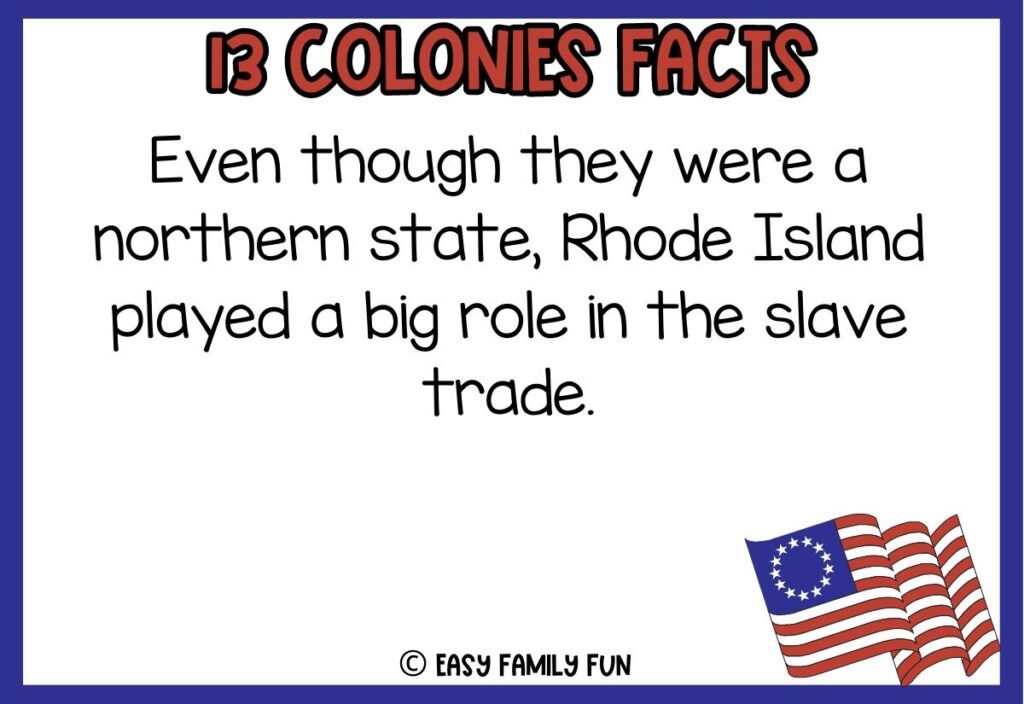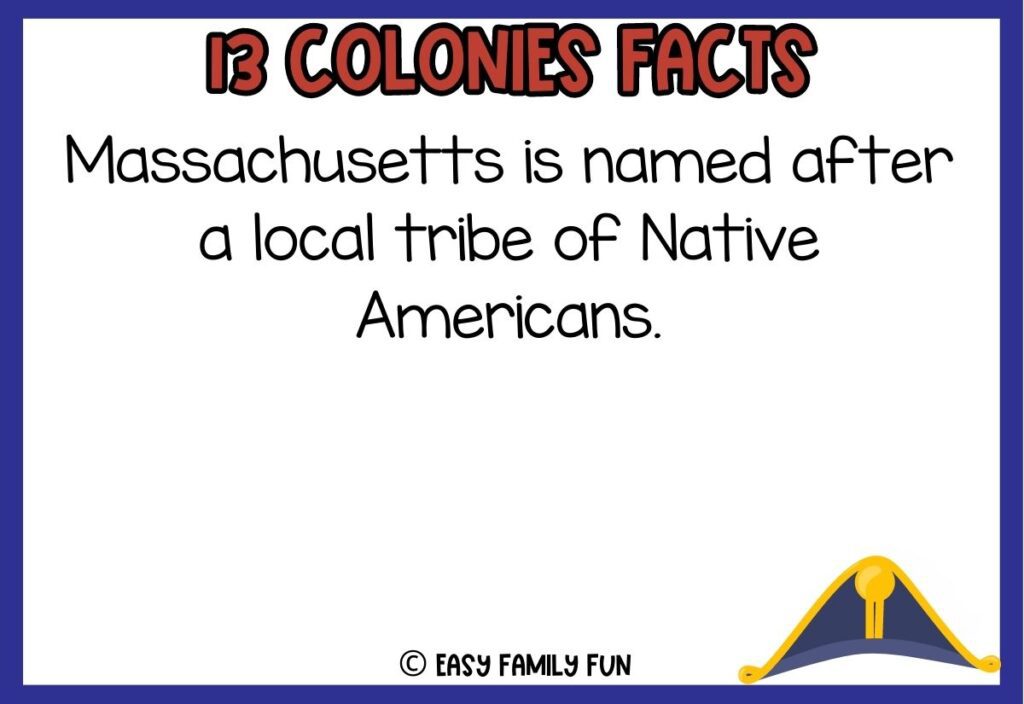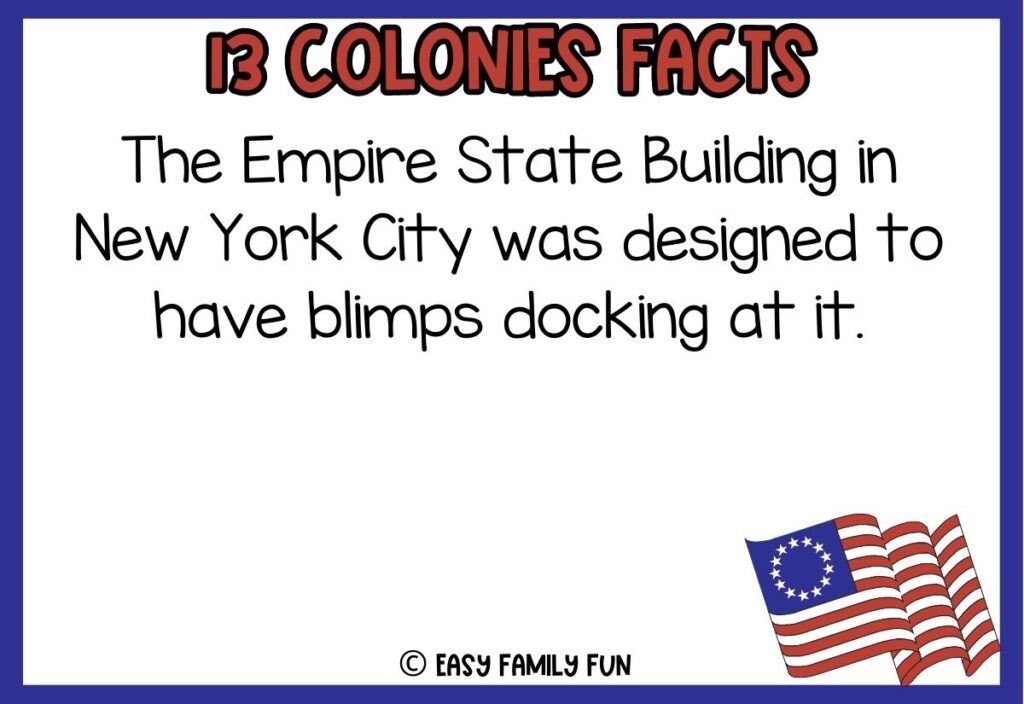Did you know that 13 Colonies were the building blocks of the United States? They weren’t just any ordinary group of settlements; they were the pioneers who paved the way for the land of the free! But it’s not just history lessons; these Facts About the 13 Colonies will help you uncover some lesser-known secrets about their daily lives, traditions, and even their favorite dishes!

Hold on to your tri-corner hats as we journey through each colony’s unique quirks and characteristics. From the bustling streets of Massachusetts to the sunny shores of Georgia, each colony had its own story.
Get ready to be amazed by the diverse backgrounds of the colonists – they came from all walks of life seeking freedom and a fresh start. Their hard work and resilience laid the foundation for the nation we know today.
We’ve got the scoop on how they survived, thrived, and sometimes clashed with one another, all while striving for independence. And, oh boy, did they leave behind some intriguing tales of bravery and rebellion! If you love history, check out our Facts About the 9/11 Memorial and Facts about Rosa Parks.
Facts About the 13 Colonies

- The first Constitution in America was enacted in Connecticut.
- Maryland was founded as a place for religious freedom for Christians.
- The American Iron industry was born in the state of Massachusetts.
- Pennsylvania was created as a payback to William Penn for all his father did for the Royal Navy.
- New Caesarea was another name for New Jersey.

- New Hampshire recruited more settlers by giving away land for one ear of corn a year.
- Tobacco became Virginia’s most lucrative crop despite the king and the Virginia Company opposing it.
- James Oglethorpe wanted a place in the Americas for impoverished people and debtors, so he founded Georgia.
- New York’s fur hat exportation was the first thing to be restricted by the British trade restrictions.
- South Carolina was able to make a lot of money for their blue dye trades to the British.

- Even though they were a northern state, Rhode Island played a big role in the slave trade.
- Delaware was not really a colony until 1776.
- North Carolina was sold back to the king of Britain.
- The first winter was hard on the settlers; less than half survived.
- New York started out being New Amsterdam and was part of the Dutch colony of New Netherland.

- Massachusetts is named after a local tribe of Native Americans.
- There are a few places that were settled as colonies but never made it to statehood, like The Lost Colony of Roanoke.
- Several colonies were named after rulers in England like Carolina was named after King Charles.
- Several countries settled in the Americas, including Spain, Germany, and the Netherlands.
- When the revolutionary war started, the colonies only had 2.5 million people living there.

- Drinking coffee became a political statement after the Boston tea party.
- Because the middle colonies’ biggest crops were wheat, barley, and rye, they were called the breadbasket colonies.
- No one knows what the founding father of Delaware looks like because he had a severe case of face cancer and never had his portrait painted and wore a green cloth over his face in public.
- There is a giant shoe in Pennsylvania that two people can stay in.
- In 1949, New Jersey passed a law saying you could not pump your own gas, but an attendant would do it for you.

- Other than Peaches, peanuts, and pecans are well-known exports as well for the state of Georgia.
- Massachusetts has a lot of firsts that happen there such as the First public park: Boston Commons, 1634, and the First Subway: Boston, 1898.
- The town of Saint Michaels, Maryland, was able to fool the redcoats in the War of 1812 by putting lamps in trees and on ship masts, making their town look higher than it really was.
- South Carolina has a law that you can sue someone that gets engaged and doesn’t go through with the marriage.
- Stonewall Jackson is buried in Virginia.

- The Empire State Building in New York City was designed to have blimps docking at it.
- Jamestown was the first colony of the 13 founded in 1607 after the failure of Roanoke.
- It took almost 80 years after the Americas were discovered before Britain tried to settle here, and their first settlement was lost.
- Rhode Island was the first to renounce Britain as its ruler and the last one to ratify the constitution.
- Many of the first people to come to settle the Americas were indentured servants.

Hopefully you learned something new! If you did, tell us about it in the comments.
Are you looking for more fun and engaging facts to share with your family? Check out these other posts for more facts!
- 100 Fascinating Facts about Mexico
- 75 Fascinating Facts About France
- 100 Purr-fectly Delightful Facts About Cats
- 87 Fascinating Facts About Owls
- 103 Super Cool Facts About Space
- 100 Interesting Facts About Hurricanes
- Facts About the 9/11 Memorial
- Facts About Spring
- Facts About Rosa Parks
- 50 Fascinating Facts About Butterflies
- 50 Fascinating Facts About Eagles
- Facts About Rome
- Facts About Lions
- Facts about Big Ben
- 100 Best Facts About Quartz for Kids
- 100 Best Facts About Cheese For Kids
- 100 Best Facts About Canada for Kids
- 100+ Out-of-This-World Facts about Earth
- 100 Epic Bug Facts for Kids
- 100 Weird Facts About Animals for Kids
- 85 Stellar Facts About Jupiter
- 135 Fascinating Facts About Ireland That Will Make You Fall in Love
- 50+ Interesting Facts about the Nervous System [Fact Cards]
- 55 Interesting Facts About Seattle [Free Fact Cards]
- 55 Best Facts about Frogs [Free Fact Cards]
- 66 Best Facts About Blueberries [Free Fact Cards]
- 37 Best Facts About Bacon [Free Fact Cards]
- 65 Best Facts About Comets [Free Fact Cards]
- 85+ Best Titanic Facts [Free Fact Cards]
- Interesting Facts about Ladybugs [Free Fact Cards]
- Abraham Lincoln Facts You Should Know [Free Fact Cards]
- Dive Into These Facts About Jellyfish [Free Fact Cards]
- Interesting Banana facts [Free Fact Cards]
- 20 Interesting Facts About Red Wolves [Free Fact Cards]
- Mt. Rushmore Facts: Carving History in Stone [Free Fact Cards]
- 66 Best Facts About Blueberries [Free Fact Cards]
- Over 100 Fun Facts about North Carolina [Free Fact Cards]
- 79 Electrifying Facts about Lightning [Free Fact Cards]
- 56 Interesting Facts About Snakes [Free Fact Cards]
- 56 Interesting Facts About Snakes [Free Fact Cards]
- 53 Fascinating Facts about Spiders [Free Fact Cards]
- 74 Interesting Facts About New Zealand [Free Fact Cards]
- 50 Interesting Facts About Apples [Free Fact Cards]
- 100 Purr-fectly Delightful Facts About Cats
- Buzzing with Knowledge: Explore 65 Fascinating Facts About Bees!
- 100 Marvelous Facts About Monkeys
- Gallop Through Knowledge: With These 75 Fascinating Facts about Horses
- Travel Back in Time With These Facts About the 13 Colonies!
- 52 Facts About Neptune for the Future Astronauts in Your Family
- 40 Incredible Facts About Your Heart
- 25 Remarkable Facts about James Madison
- 35 Oink-some Facts About Pigs
- 50 Neck-Stretching Facts about Giraffes
- 65 Patriotic Facts about the Statue of Liberty
- 50 Incredible Facts About Turtles
- 40 Mischievous Facts About Raccoons
- 135 Fascinating Facts About Ireland That Will Make You Fall in Love
- 85 Stellar Facts About Jupiter
- 100 Weird Facts About Animals for Kids
- 100 Epic Bug Facts for Kids
- 100+ Out-of-This-World Facts about Earth
- 100 Best Facts About Canada for Kids
- 100 Best Facts About Cheese For Kids
How Do I Access My Printable?
Fill in the form above. You will receive an email in your inbox. If you don’t see it, check your spam folder! You will then click to confirm your subscription. Once confirmed, you will be taken to Airtable (a different website) where all our free printables will be waiting for you! It is free to sign up for Air Table!
How Do I Print A PDF?
You’ll need a program that supports PDFs. Adobe Acrobat is a great option. Open the program, click file, then print. Select your printer and the number of copies you want to print. Be sure you click double-sided if you want it to print on both sides.
Can I Resell These?
You may not resell any printable found on our website or in our resource library. You may use them for class parties, at church, at home, or in the classroom. You may get these printed at an office supply store or copy center at your own expense.
